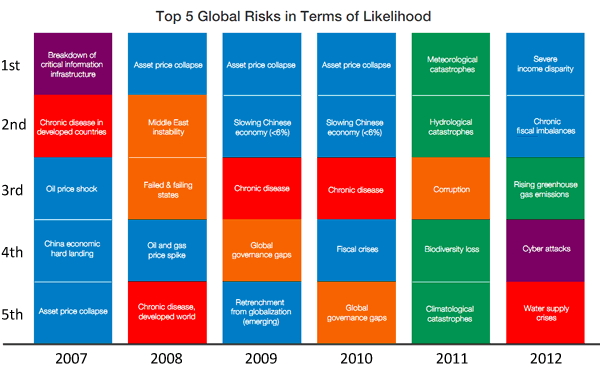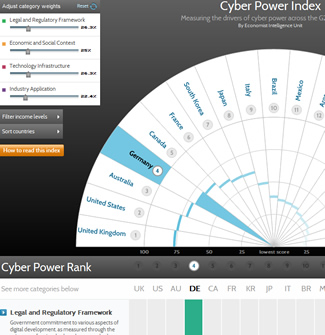An annual study performed by the World Economic Forum's Risk Response Network determined that a major cyber attack is the fourth most likely global risk to occur. Although it is one of the most likely risks, the same report suggests cyber attacks have a relatively low impact compared to other global risks, such as economic turmoil and social upheaval.
The heightened threat of computer-based attacks should come as no surprise as hackers and hacktivists have been increasingly busy breaking into computer systems, stealing credit cards, pilfering and releasing sensitive documents, taking down websites and much more. 2011 was certainly a busy year for hackers.
With the exponentially growing cloud of information and devices available, the study calls to attention the "dark side of connectivity". Researchers don't believe that attacks in cyber space are as serious as attacks in the real world as of yet, but they do acknowledge this becoming a reality in the future.
The document reasons that a healthy digital space is a necessity as power shifts from the real world to the online world. The report suggests since online security is considered a public good, there needs to be more involvement in maintaining that security by the private sector. In other words, companies who control of key parts of our infrastructure need to ensure those points to not become vulnerable.

Alongside the study, a separate initiative by research firm, Booz Allen Hamilton, has taken the liberty of compiling their data into a website which ranks how robust G20 nations are in terms of information technology.
The G20 is a short list of countries which are thought to be key, global economic powers.
There are four key metrics the site uses to rank a country's "cyber power": legal and regulatory framework, economic and social context, technology infrastructure and industry application. With metrics equally balanced, the UK, US and Austria round out the top three cyber powers, followed Australia, Germany and Canada.
